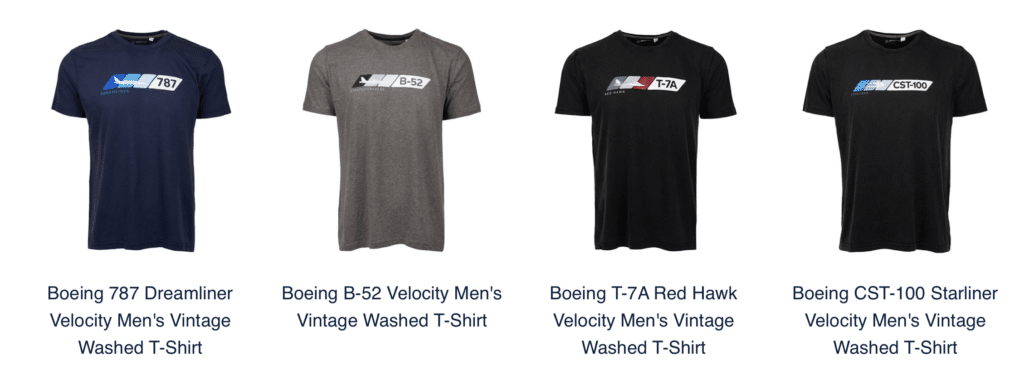In an interesting development for brand owners, the U.S. Patent and Trademark Office’s appeal board has sided with Boeing in its bid to block the registration of “787 Resell” for use in connection with on-line retail store services featuring sneakers. Boeing initiated an opposition proceeding with the Trademark Trial and Appeal Board (“TTAB”) in November 2022, arguing that the “787 Resell” mark should not be registered on the basis that it is confusingly similar to – and likely to dilute – its registered 787 marks, which it uses on various goods/services, including apparel.
At the heart of the opposition, which the TTAB sustained on likelihood of confusion grounds, is Ricardo Ortiz Santos’ application for registration for a trademark that consists of the numbers “787” alongside a stylized sneaker design and the word “Resell” – for use in connection with a sneaker resale site. In its opposition, Boeing argued that in Guaynabo, Puerto Rico-based Santos’ use of “787” in connection with the sale of sneakers would create confusion among consumers due to the overlapping nature of parties’ goods, and in particular, Boeing’s sale of clothing bearing the “787” mark.
In furtherance of its confusion and dilution claims, the aircraft manufacturer pointed to its numerous registrations for the “787” trademark, which cover uses ranging from the custom manufacture of aircrafts to toys and apparel.
The TTAB’s Decision: Likelihood of Confusion
In its November 26 ruling, the TTAB examined several factors under the DuPont framework, with two key considerations being the strength of Boeing’s “787” mark and the relatedness of the goods and services involved.
Commercial Strength/Fame: Reflecting on the “Commercial Strength/Fame” of the Boeing 787 mark in connection with clothing, the TTAB disagreed with Boeing, which argued that the mark is commercially strong to the point of being famous, including when it comes to apparel. Arguing in favor of strength of the 787 mark, Boeing stated that it has used the mark on goods/services, including apparel, since 2007; generated revenues in the low seven figures from apparel products bearing the mark; spent “in the high eight figures” on advertising and promotional expenditures throughout the world for the 787 “brand and products;” amassed a sizable social media following; and been the subject of a unsolicited media attention.

The TTAB took issue with much of the evidence here, finding that the evidence of U.S.-specific sales and advertising of apparel was limited. As such, the TTAB held that the evidence of record is insufficient to establish fame of the 787 mark for the identified goods: clothing, namely, shirts, jackets, and headwear.
> Santos sought to chip away at the strength of Boeing’s 787 mark, alleging that the mark is “heavily diluted” – or “commercially weak.” In support, of this claim, he supplied the TTAB with a list of Instagram accounts that include “787” in the handles, among other things. The TTAB found the evidence to be unpersuasive, holding that social media handles “are of little probative value because they do not show use of the name as a trademark.”
Despite the little probative evidence related specifically to the strength of Boeing’s 787 mark, particularly on clothing (some pictured below), the TTAB still concluded that the mark is of “average commercial strength when used on or in connection with [clothing]” and that it is entitled to the normal scope of protection accorded an inherently distinctive mark.

Relatedness of the Goods/Services: The court also focused on another one of the DuPont factors – the relatedness of the goods and services. Finding that this factor weighed in favor of Boeing, the board stated that “clothing and the retail sale of sneakers are complementary … as they may be purchased and used together in an online retail setting.” In short: the TTAB determined that there was enough overlap between Boeing’s apparel offerings and Santos’ sneaker retail services to sustain a likelihood of confusion.
> TLDR: The TTAB found that there is a likelihood of confusion between Boeing’s 787 mark and Santos’ 787 Resell mark, stating that “on the basis of the record as a whole, it is likely that a consumer familiar with [Boeing’s] 787 Mark for clothing, namely shirts, jackets, and headwear, who separately encounters [Santos’] 787 RESELL composite mark for an online retail store for sneakers is likely to believe mistakenly that [Santos’] services originate with, or are authorized or sponsored by, [Boeing].”
THE BIGGER PICTURE: For brands, the ruling highlights the need to maintain rigorous documentation of the scope and use of their trademarks, particularly when operating across diverse sectors. As consumer markets evolve, the once well-established lines between tech-driven industries, retail, and traditional manufacturing are blurring, which is giving rise to potentially complex trademark issues for big-name companies and upstarts, alike.
The opposition is The Boeing Company v. Ricardo L. Ortiz Santos, No. 91281566 (TTAB).














